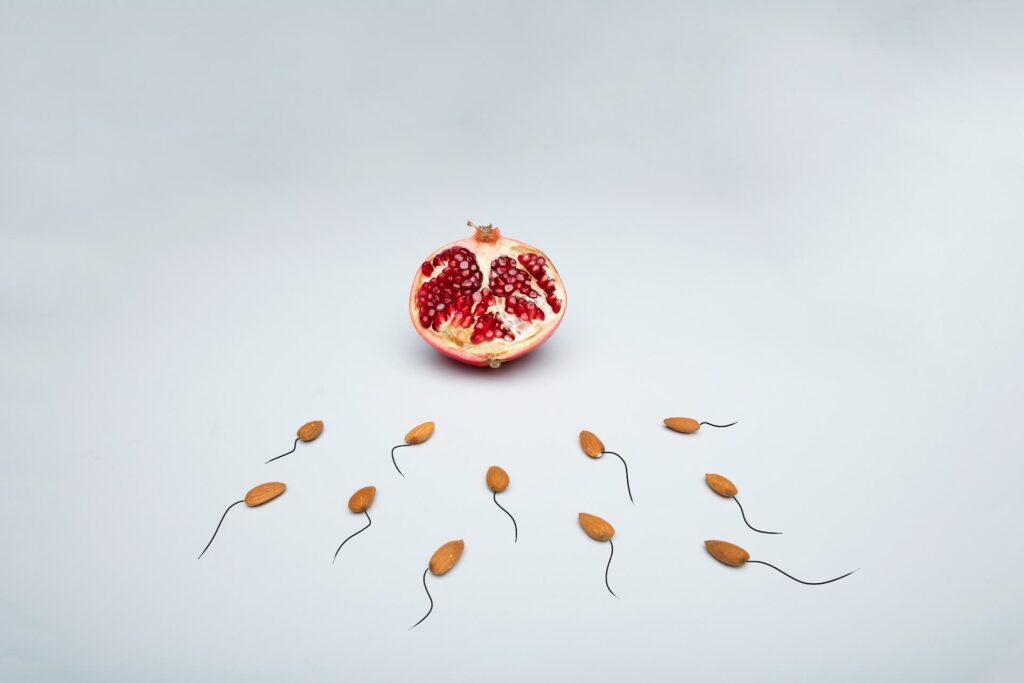Testosterone Replacement Therapy (TRT) is a popular treatment for men grappling with the effects of low testosterone levels, a condition often linked to aging, certain medical conditions, or lifestyle factors.
However, while TRT offers significant benefits in terms of energy, mood, and sexual function, it presents a paradox when it comes to male fertility. This therapy, aimed at boosting testosterone, can ironically impair sperm production, creating challenges for men wishing to conceive.
This article delves into the intricate relationship between TRT and male fertility, exploring how men can manage their hormonal health while preserving their reproductive potential, and highlighting the latest medical strategies and insights in this complex field.
1. Testosterone Therapy Treats Low Testosterone

Although this may state the obvious, TRT is there to treat men with low testosterone levels. It’s not there for muscle gain or fat loss, although those do happen from testosterone therapy. TRT treats a real illness known as hypogonadism, a medical condition where the body fails to produce sufficient levels of testosterone.
Testosterone is a critical hormone in males and essential for maintaining various physiological functions. Its roles include regulating libido, ensuring muscle strength and mass, maintaining energy levels, and influencing mood and bone density.
Hypogonadism can be either primary, originating from problems in the testes, or secondary, resulting from issues in the brain’s hypothalamus or pituitary gland.
Symptoms of low testosterone levels are diverse, ranging from reduced sex drive, fatigue, and depression to physical changes like increased body fat, decreased muscle mass, and reduced bone density.
TRT aims to increase testosterone levels back to normal, thereby alleviating these symptoms. This therapy can be administered through various forms, including injections, patches, gels, or tablets.
2. Testosterone Plays A Vital Role In Sperm Production

Having proper testosterone levels makes a huge difference in creating sperm, a process medically known as spermatogenesis. This complex biological process occurs within the seminiferous tubules of the testes and is crucial for male fertility.
The male body needs testosterone for initiating and maintaining spermatogenesis. It acts on the Sertoli cells, which are essential for nurturing and developing sperm cells. The presence of adequate levels of testosterone is necessary for the proper maturation of spermatozoa, the final stage of sperm cell development.
Testosterone also has a job outside of the testicles. It helps control the release of two other hormones from the brain: luteinizing hormone (LH) and follicle-stimulating hormone (FSH). LH is needed to make testosterone, and FSH plays a direct role in the production of sperm.
If males don’t have enough testosterone, it can lead to fewer sperm being made and might affect their ability to have children. That’s why having the right amount of testosterone is really important for a man’s fertility and overall reproductive health.
3. TRT Can Cause Infertility And Reduced Sperm Count

Testosterone Replacement Therapy can significantly impact a man’s fertility, primarily by reducing sperm count. Testosterone administered externally can disrupt the body’s natural hormone balance, leading to decreased production of sperm.
This happens because when the body detects extra testosterone from TRT, it reduces its own production of certain hormones that are essential for sperm production, like follicle-stimulating hormone (FSH) and luteinizing hormone (LH), as mentioned earlier. FSH and LH are crucial for stimulating the testes to produce sperm, so their reduction leads to lower sperm counts.
In some cases, men undergoing TRT may experience a drastic drop in sperm count, even reaching a point where no sperm are produced at all, and become infertile, a condition known as azoospermia.
This reduction in sperm count can significantly decrease the likelihood of conceiving naturally.
4. TRT Causes Decreased Testicular Size
Testosterone Therapy can lead to a decrease in testicular size, a condition known as testicular atrophy, which in turn affects male infertility. This shrinkage occurs because external testosterone supplementation disrupts the body’s natural hormone production process.
Normally, the brain releases hormones like Luteinizing Hormone (LH) that signal the testes to produce testosterone. However, when the body receives testosterone from an external source, like TRT, it reduces its own production of these stimulating hormones.
As a result, the testes receive fewer signals to produce testosterone, leading to reduced activity and, over time, a decrease in size. Since the testes are also responsible for sperm production, this reduced activity can lead to a significant decrease in sperm count.
The extent of testicular shrinkage and its impact on creating sperm can vary among individuals, influenced by factors like the duration and dosage of TRT, as well as individual physiological responses.
5. TRT Does NOT Cause Permanent Infertility In Most Men

In most cases, TRT does not cause permanent infertility when treatment is properly stopped.
When TRT is discontinued, the body usually begins to restore its natural hormone balance, which can lead to a recovery in sperm production.
Just as extra testosterone caused FSH and LH to decrease, stopping TRT will cause the body to restart its production of these fertility-related hormones
The time frame for recovery can vary significantly among individuals. For some men, sperm count may return to normal levels within a few months, while for others, it could take a year or longer.
6. But, Some Not Recover From Male Infertility Caused By TRT
In some cases, the recovery of sperm production may not be complete, and some men might not regain their previous fertility levels.
This incomplete recovery is influenced by several factors. Long-term or high-dose use of TRT is a significant factor; the longer and more intense the therapy, the higher the likelihood of persistent fertility issues. This prolonged exposure to external testosterone can lead to a more extended suppression of the body’s natural hormone production, including hormones critical for creating sperm.
Age also plays a crucial role. Older men generally have a slower and less efficient recovery of fertility functions post-TRT. Additionally, underlying health conditions that may have contributed to the initial need for TRT, such as testicular dysfunction or hormonal imbalances, can further complicate the recovery process.
The reversibility of TRT’s effects on fertility is influenced by factors such as the duration and dosage of TRT, the individual’s age, and their overall health.
Therefore, decisions about TRT, especially for men who plan to father children, should be made in consultation with healthcare professionals.
7. TRT Is Not The Only Option For Low Testosterone

Treatment options for men who are concerned about preserving fertility have alternatives to TRT that are less likely to impact male fertility.
Clomiphene Citrate
Clomiphene works by stimulating the body’s own production of testosterone and does not have a negative impact on fertility that external testosterone does. It indirectly causes the body to produce more luteinizing hormone (LH) and follicle-stimulating hormone (FSH), which in turn stimulates the testes to produce more testosterone and sperm.
Aromatase Inhibitors
Medications like anastrozole or letrozole can also be used. These drugs work by preventing the conversion of testosterone to estrogen, increasing the body’s natural testosterone levels and potentially improving fertility.
These alternatives require careful management and monitoring by healthcare professionals, as they are tailored to individual needs and medical conditions. They offer effective ways to treat low testosterone while minimizing the risk to fertility.
8. TRT Effects Each Person Differently
Testosterone Replacement Therapy and its impact on infertility can vary greatly from person to person, underlining the complexity of the human endocrine system. Individual differences in physiology, genetics, and overall health play a significant role in how each man’s body responds to TRT and its effects on fertility.
For instance, the extent to which TRT suppresses natural testosterone production and sperm count can differ widely. Some men may experience a dramatic drop in sperm count, while others might see only a modest decrease. The duration of therapy also contributes to this variability; longer treatment typically has a more pronounced effect.
Age is another crucial factor. Younger men might recover their sperm production more quickly and fully after discontinuing TRT compared to older men, whose reproductive systems might be more sensitive to hormonal changes.
Pre-existing health conditions, including the underlying cause of testosterone deficiency, can also influence the impact of TRT on fertility. Men with certain genetic or hormonal disorders might be more susceptible to the fertility-reducing effects of TRT.
Lastly, lifestyle factors, such as diet, exercise, and stress levels, can also modulate how TRT affects an individual’s fertility, adding another layer of complexity. This wide range of influences underscores the importance of personalized medical advice and treatment plans for men considering or undergoing TRT.
9. Both Sperm Reduction and Recovery Takes Time
Testosterone Replacement Therapy and its effects on fertility, both in terms of development and recovery, are processes that unfold over time. The impact of TRT on reducing sperm count doesn’t happen overnight.
Instead, it typically develops gradually as the external testosterone disrupts the body’s natural hormonal balance. This gradual decrease in sperm production can take weeks to months to become significant.
Similarly, the recovery of fertility when stopping TRT is not immediate. Once TRT is stopped, the body begins to restore its natural hormonal rhythm, which includes the resumption of internal testosterone production and, consequently, sperm production.
10. Patients Must Be Monitored For Success

When patients undergo testosterone therapy, proper monitoring is crucial, both for ensuring the effectiveness of the treatment and for evaluating its impact on fertility. Testosterone levels must be regularly checked to ensure they remain within the therapeutic range.
This avoids potential side effects associated with both low and excessively high testosterone levels. Equally important is monitoring hematocrit and hemoglobin levels, as TRT can increase blood viscosity, posing a risk for cardiovascular issues.
Regarding fertility, TRT can significantly impact sperm production. Testosterone supplementation can suppress the body’s natural production of the hormone, leading to reduced sperm count and potentially affecting fertility.
Patients desiring future fertility should discuss this with their healthcare provider before starting TRT. In such cases, alternative treatments like clomiphene citrate may be considered. Regular semen analyses may be recommended to assess the patient’s sperm count and motility, ensuring an informed approach to their reproductive health while on TRT.

Ashlee is the Medical Director at Evolve Wellness and Health in Englewood, Colorado. She obtained her Master of Science in Nursing in 2006 from Colorado State University-Pueblo, and is board-certified through the American Nurses Credentialing Center as an Acute Care Nurse Practitioner. She has practiced in the field of hormone replacement therapy (both male and female) and medical weight loss since 2013.


